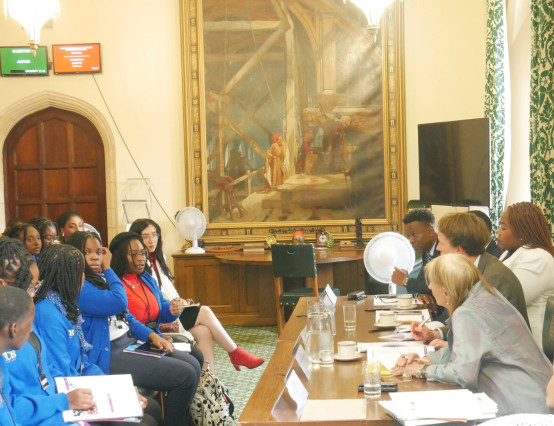Discussing the claim that climate change is becoming one of the greatest threats to national securities in the twenty-first century, CogX’s ‘The heat is on: The greatest threat to our national security’ panel was moderated by US Representative Sweta Chakraborty, joined by panellists Christine Pathermore, Erin Sikorsky, and Neil Morisetti.
Sweta began the panel by stating, “The climate crisis is changing everything [...] climate change is a threat multiplier; it exacerbates existing conflicts and puts human, national and global security at risk”.
What is the relationship between climate and security?
Erin Sikorsky, Deputy Director of the Center for Climate and Security, explained how most countries have previously focused their security around threats from other states and countries. However, following 9/11, that focus group included non-state actors, terrorist groups and extremist organisations.
Sikorsky suggests that new measures need to be taken into account for these ‘actor-less risks’ – things which cross borders easily, aren’t managed by just one state alone and require global cooperation.
What are the threats?
Looking at climate change, Sikorsky highlighted the following significant risks:
The risk to people.
The risk of heat.
The risk of extreme weather.
“In 2020 alone, more people around the globe were forced to move within their countries due to extreme weather events than to direct conflict and violence”, - Erin Sikorsky.
She also mentioned additional risks often overlooked, such as damage to infrastructure, military infrastructure and interrupted operations due to weather.
Christine Pathermore, CEO and Council on Strategic Risks mentioned three primary areas of concern:
Nuclear security. The way that countries manage nuclear energy and weapons, alongside geographical events and displacement, as tensions rise within states. “As climate change, as well as other economic and political and environmental factors, drive these different trends, that’s going to have implications for how countries deal with the security of nuclear sites in their countries”. Parthermore listed an example of Nigeria, where an area once declared as ‘safe’ from terrorist threat to build a nuclear site, is now a prime area for terrorist groups due to geographical displacement and rising tensions, putting the nuclear site at major risk.
Nuclear weapons and cross border tensions. She listed the example of the area surrounding India, China and Pakistan. “All three of these countries have nuclear weapons. There have been cross-border tensions and actual shots fired across these different countries in recent years. Whether tensions rise or fall will depend on a lot of diplomacy and other things. But internally driving all of this, all three countries are really already experiencing dramatic effects of climate change, and we know from the projections and the science tells us that that’s only going to get worse and worse”.
The arctic circle. Parthermore listed the final example as the melting ice in the arctic, as the land becomes more accessible due to climate change. She stated, “obviously Russia is considering how that might benefit them as a nation and increase their power and ability to project power with regard to countries like the United States and NATO allies as well”.
What is the solution?
Neil Morsessti, Vice Dean (Public Policy) Faculty of Engineering Sciences at UCL also contributed to the discussion, stating, there is no security solution to climate change.
“It’s like many transboundary non-traditional threats that neither have a military origin or necessarily a military solution. There’s just greater insecurity if you don’t act, but that doesn’t excuse the security community from taking action. In this instance, they need to do it as part of a whole government holder society approach to reduce the risks posed in the community. They need to acknowledge it’s a problem, and they need to gather the information and conduct an analysis.”
Then, he suggested building capacity and resilience in most vulnerable countries, although explained that because we live in a globalised world ‘that will probably fall to the likes of non-government organisations’.
Morsessti also emphasised bringing communities together who speak a common language and sharing their ‘critically important regional expertise’ for dealing with droughts or a shortage of food-bearing crops.







Sweta Chakraborty's assertion that "the climate crisis is changing everything" is a stark reminder of how intertwined climate change and national security have become. The CogX panel effectively highlighted the multifaceted nature of these threats, from the displacement of populations due to extreme weather to the strategic vulnerabilities in nuclear security.
Erin Sikorsky's insight into 'actor-less risks' underscores the complexity of modern security challenges that transcend borders and require unprecedented global cooperation. It's particularly alarming to consider that in 2020, more people were displaced by extreme weather than by conflict, a trend likely to worsen without urgent action.
Visit
https://codesealer.com/